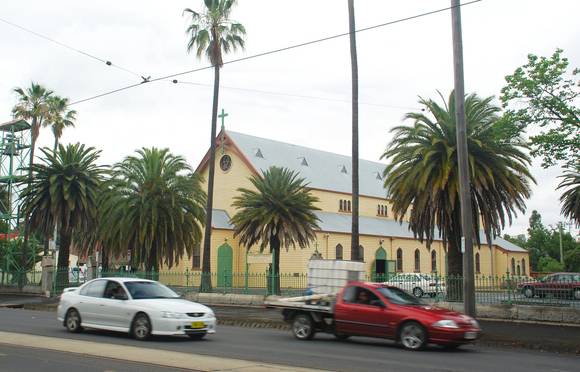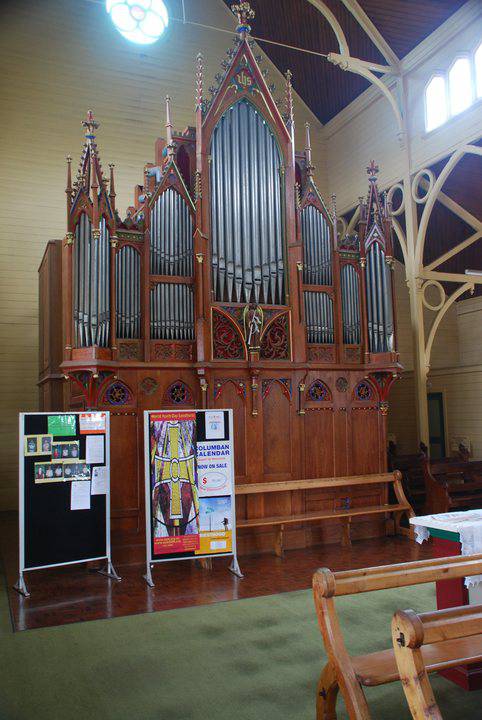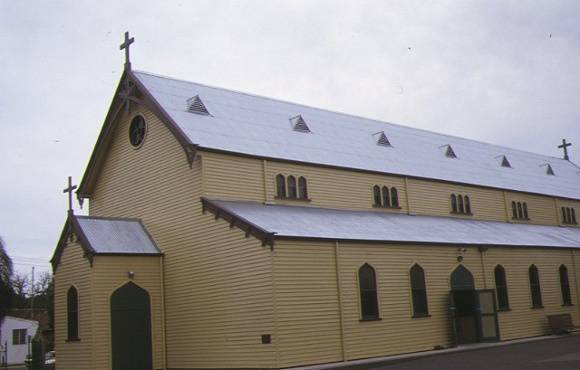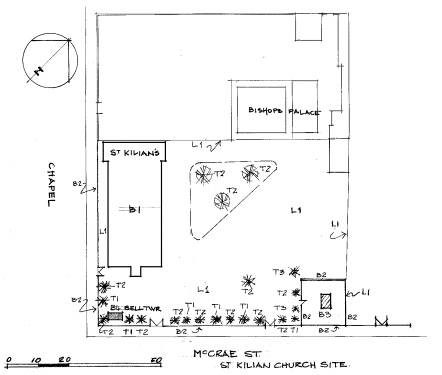| Back to search results » | Back to search page » |
|
ST KILIANS CATHOLIC CHURCH
Location173 MCCRAE STREET BENDIGO, GREATER BENDIGO CITY
File Number600048 [ 1 - 2 ]LevelRegistered |
|
Statement of Significance
Within months of gold being discovered in Bendigo in 1851, the Rev
Father Dr St Kilian's Church is of architectural, aesthetic and historic
importance to St Kilian's Church is architecturally and aesthetically important as
an intact St Kilian's Church is historically important for its association with
Rev Dr
Henry Backhaus (1811-1882) arrived on the diggings and
celebrated the first
mass. For over a year he conducted services in
a tent, before a bark and slab
chapel was built for him by the
diggers. The first St Kilian's church was
constructed in 1857. A
sandstone structure of Gothic design, it served the
congregation
until it was replaced by the present St Kilian's church in
1888
thus perpetuating continuing use by the Catholic Church.
Designed by the
notable local architect W. C. Vahland (1828-1915)
the Gothic timber structure
of kauri, oregon and hardwood was
originally intended to serve as a temporary
pro-cathedral until
such time that a cathedral could be built. The 1860
German organ
and the bell and bell tower of 1869 from the former church
were
accommodated at the new premises. After the opening of the
Sacred Heart
Cathedral in 1901, St Kilian's became a parish church.
the State of Victoria.
and unusually large timber church. Featuring a long nave
with clerestory and
side aisles, the church is significant for its
fine hammerbeam ceiling,
impressive series of timber arches,
crafted joinery, uniformly designed
ecclesiastical furnishings
including 56 curve end pews, the Backhaus stump
chair, Baptismal
font, small nave table, high Altar and reredos, High Altar
side
table, main altar candlestick, the timber sedilia, two side altars
and
two side altar tables. These together with the superbly carved
German organ
and its bench seat, make this all timber interior
unique among churches in
Victoria. Other notable features include
the historically important bell and
bell tower, the iron and
granite fence and palms plants, which are
aesthetically important
for their formal streetscape qualities. The stepped
row of
Washingtonia palms alternating with shorter Canary Island palms
which
border the Chapel and McCrae Street frontages and the
Backhaus' gravesite is
unusual and of note.
Henry Backhaus, pioneer clergyman of the Roman Catholic
Church on the Bendigo
goldfields from 1852 to his death 1882. He is
buried in the grounds. The
church is also historically important
for its association with architect, W.C.
Vahland, and is the only
known timber church of his design.
Group
Cemeteries and Burial Sites
Category
Grave surrounds/Iron railing







